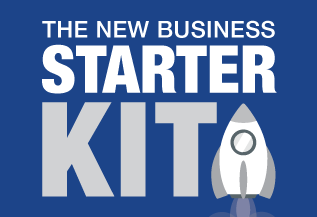Business Planning
To fund your business start-up or expansion you’re almost certainly going to need a business plan to convince the bank or investors that your business is a good financial risk.
A business plan should demonstrate how much money you need, why you need it and when your investors are likely to get repaid. It should instil confidence in your business and management skills to convince your bank, financier or investors to lend you the necessary funds. To raise substantial capital for your privately held business your business plan must be clear, complete and realistic. A poorly prepared business plan will impact on your chances of receiving the funding.
Basically a business plan should provide an overview of your current business position, where you plan to go and how you intend to get there. Within the plan, you need to demonstrate your current financial position and how it will change over the next few years. Having a business plan can deliver substantially more than just a document to satisfy your financiers. It can be a road map for your business growth and success that both business owners and staff can refer to for guidance and direction. Without a business plan you can’t measure your success or establish your priorities. Your business is effectively drifting like a ship without a rudder.
Most business owners fail to make a start on their business plan because they are either too busy or don’t understand what is required in the plan. Too often they are working IN the business dealing with day to day issues instead of working ON the business with strategic planning. Devoting some time to work on your business is an investment that can pay substantial dividends.
 To succeed you need a clear vision for your business and a business plan will convert that vision into strategies. Your vision should outline where you want to take the business in the medium to long term and can be expressed as a series of objectives. So many business owners fail to put pen to paper because they are waiting for more certainty regarding their current financials, funding, sales or partners but your business plan should steer your activity, not the other way around.
To succeed you need a clear vision for your business and a business plan will convert that vision into strategies. Your vision should outline where you want to take the business in the medium to long term and can be expressed as a series of objectives. So many business owners fail to put pen to paper because they are waiting for more certainty regarding their current financials, funding, sales or partners but your business plan should steer your activity, not the other way around.
We believe every business should start with the end in mind which is why we are so pedantic about helping clients with their business structure, accounting software selection, website and marketing plans. This is also important from a business planning perspective because you need to consider the financial outcomes you would like to achieve from the start. Using some financial modelling tools we can prepare ‘what ifs’ calculations so you know your best and worst case scenarios but without knowing your financial goals you are missing a key driver for your business plan.
Basic Elements of a Business Plan
Most business plans contain 5 key components.
1. Business Description – You need to provide an overview of your business operations but you should try and keep it simple and assume the reader has virtually no knowledge of your industry or operations. Make sure that the reader will have a firm understanding of your business, the products and services and who your targeted customers or clients are.
2. Competition - Clearly describe who your competitors are and why they have the lion’s share of the market. You should also explain how they achieved their status and how you intend to win a share of the market. Be realistic but conservative with your estimates and paint the picture based on best, worst and likely scenarios.
 3. Marketing - Provide a detailed description of the marketing techniques you plan to use to achieve your projected sales figures. Highlight your points of difference, your focus on niche markets and provide an insight into the unique features in your website, the search engine optimisation techniques and marketing collateral you plan to create. Cover off on your branding, launch and ongoing marketing activities given it could be the difference between boom or bust. Convince prospective investors that you are not only confident and serious about increasing your sales but you also have the skills, techniques and collateral to achieve your targets.
3. Marketing - Provide a detailed description of the marketing techniques you plan to use to achieve your projected sales figures. Highlight your points of difference, your focus on niche markets and provide an insight into the unique features in your website, the search engine optimisation techniques and marketing collateral you plan to create. Cover off on your branding, launch and ongoing marketing activities given it could be the difference between boom or bust. Convince prospective investors that you are not only confident and serious about increasing your sales but you also have the skills, techniques and collateral to achieve your targets.
4. Personnel – Success in business can boil down to 3 key variables – strategy, tools and people. Without pro-active people on the management team the best ideas and products can fail. Describe your management team and include resumes of all your key personnel. You should also list people in other employment categories like production, sales, finance and administration together with an organisational chart to illustrate total employment numbers.
5. Financial Data – Illustrate your current financial position (balance sheet) as well as your current profit and loss statement and other income sources such as salaries. You then need to prepare projections for start up costs, the first year’s financial statements and a cash flow budget. They are designed to illustrate where you are going financially and ideally you should project these figures over 3 to 5 years depending on the amount you are financing.
Cash flow budgets are obviously critical to the lender to highlight the inflow and outflow of cash in your business and project bank balances at certain points in time. All of your projections should be supported by realistic assumptions that form part of the financial statements.
Benefits of Business Planning
Below we have listed four key outcomes you can expect when committing to the discipline of business planning. Every business with a structured approach to creating a strategic business and reviewing it at regular intervals can obtain these benefits.
Benefit 1 - Increase the Value of your Business
 The future value of your business will be a direct result of your actions between today and the date you sell the business. Having a plan for how this value creation will occur, what actions you will take and how you align your business with the objectives of potential buyers is critical. The earlier you get started, the greater your opportunity.
The future value of your business will be a direct result of your actions between today and the date you sell the business. Having a plan for how this value creation will occur, what actions you will take and how you align your business with the objectives of potential buyers is critical. The earlier you get started, the greater your opportunity.
Whilst justifying the asking price for your business is a key element of a business plan, the ability to set value objectives and measure your progress against these targets over time is very important. The value of your business is often something that is considered too late in the business development lifecycle. Considering the overall value of the business at the time of sale doesn’t leave you much time to build or increase the value. Value objectives and value growth should be part of any business planning process. This enables you to track your progress, not just in terms of revenue, or cash flow, but in terms of the overall business value.
Benefit 2 - Attract Funding and Partners
 Many businesses need funding from external sources or investors to grow and a well prepared and reasoned business plan is a basic pre-requisite to attract
Many businesses need funding from external sources or investors to grow and a well prepared and reasoned business plan is a basic pre-requisite to attract
funding. To help financial institutions and potential investors assess your business proposition you need a professional business plan that sells the benefits of investing in your business. The document should describe your pathway to success and actually quantify the financial success including projected profits and growth in the value of the business.
It shows that you have the discipline to prepare a plan and outlines how you intend to achieve your business objectives. Using milestones and targets you can break down your business plan into manageable and measurable actions. It is virtually impossible for potential investors or partners to provide meaningful feedback without a written plan and the document enables them to provide a critical review of the key aspects of your strategy, business model and approach. Whilst your plan may not suit all potential audiences it does provide the basis for others to test your logic and suggest revisions where required. It should explain your strategy, proposed action steps and most importantly for investors, when and how value will be created. Outline how you intend to create and build value, rather than merely explaining what the business does.
Benefit 3 - Aligning Strategy with Action
 Many businesses seem to merely exist rather than have a strategy for success. A great strategy means that everyone has a common goal and you are best able to channel your limited resources to achieve that goal. Once a high-level strategy has been developed during the planning process, this needs to be translated into clear, identifiable activities that are assigned responsibility. Any structured business planning process should start with strategy development and then directly translate this strategy into a series of actions.
Many businesses seem to merely exist rather than have a strategy for success. A great strategy means that everyone has a common goal and you are best able to channel your limited resources to achieve that goal. Once a high-level strategy has been developed during the planning process, this needs to be translated into clear, identifiable activities that are assigned responsibility. Any structured business planning process should start with strategy development and then directly translate this strategy into a series of actions.
Committing to writing these down enables you to regularly review the progress and where necessary, adjust your strategy, actions or timeframes. It also lets you identify your priorities and dedicate more resources to these areas.
Benefit 4 - Improved Decision Making
Making decisions on how to apply your limited resources is a constant challenge for business owners. Without an up to date business plan, the issue is further complicated by the fact they don’t have an agreed framework for how important decisions will be made. This can lead to poor decision making. By setting guidelines during the planning stage, operational decision-making is streamlined.
Planning involves considering the trade offs before you need to make them. Whilst ad-hoc situations will occur, a disciplined planning process will assess many potential challenges and develop appropriate steps to reduce the risk of unexpected results. There are many more benefits you can realise from allocating time for regular business planning. All you need to do is start the process and it doesn’t have to be perfect!
NEED HELP?
We can help you develop your business plan. Contact us today on (08) 8376 0455 and let’s get started on your business plan and set your business on a viable, measurable, pathway to success.
 We also invite you to book a FREE, one hour introductory consultation to discuss your business needs. You can expect practical business, tax, marketing and financial advice designed to help you accelerate your business success. To book a time, call us today on (08) 8376 0455 or complete your details in the box at the top of this page.
We also invite you to book a FREE, one hour introductory consultation to discuss your business needs. You can expect practical business, tax, marketing and financial advice designed to help you accelerate your business success. To book a time, call us today on (08) 8376 0455 or complete your details in the box at the top of this page.














